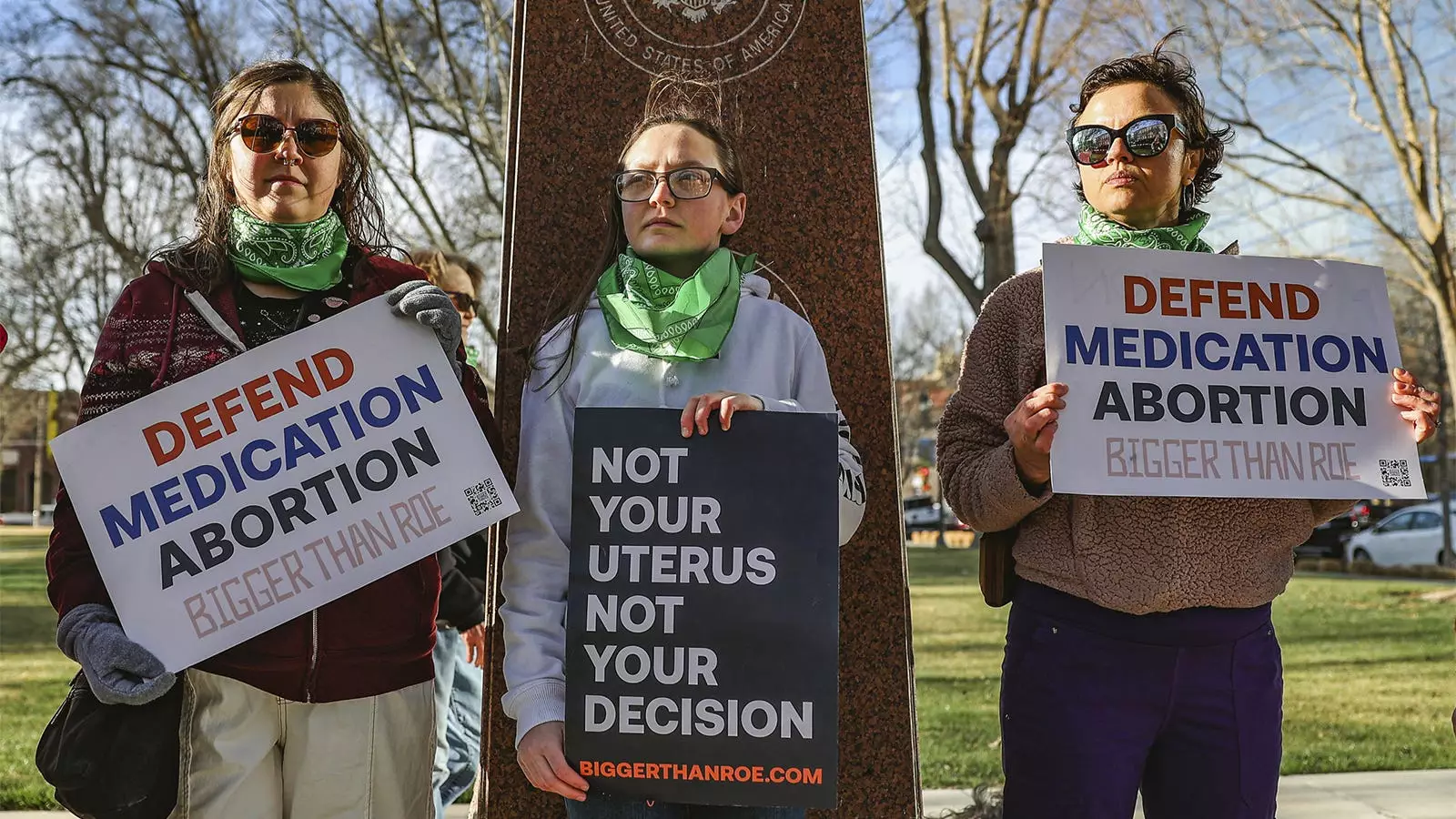In a significant legal maneuver, Texas has initiated a lawsuit against a New York physician for allegedly prescribing abortion pills to a Texas resident, marking one of the first major challenges to protective shield laws enacted by Democratic-controlled states in the wake of the Supreme Court’s decision to overturn Roe v. Wade. The lawsuit was filed by Texas Attorney General Ken Paxton, who has long been a proponent of stringent anti-abortion measures.
Filed in Collin County, the litigation against Dr. Margaret Daley Carpenter pertains to her prescription of mifepristone and misoprostol, the two medications commonly used in medication abortions. The significance of this case lies not only in its immediate legal implications but also in the broader context of abortion access across the United States. With the rise in abortion pill prescriptions—a method that has become increasingly popular due to its accessibility—this lawsuit could foster a climate of uncertainty among healthcare providers who prescribe these medications, particularly those operating outside Texas.
Most abortions in the United States now involve pills, a trend that has persisted even in the face of state-level bans. As legal expert and law professor Mary Ruth Ziegler notes, the lawsuit could deter physicians from offering medication abortions, as the fear of legal repercussions grows. This dynamic creates a chilling effect, potentially reducing access for women in states with severe restrictions.
Texas has consistently positioned itself as one of the leading states in the anti-abortion movement. The state’s existing legislation, which came into force in 2021, not only banned nearly all abortions but also empowered private citizens to initiate lawsuits against anyone involved in facilitating abortion services. With this new lawsuit, Texas is effectively reinforcing its stance on protecting “the health and lives of mothers and babies,” while simultaneously pushing back against established medical practices that diverge from its restrictive laws.
The specific allegations against Dr. Carpenter underscore the state’s determination to limit abortion access even when it intersects with out-of-state medical practices. Paxton’s declaration about the woman suffering complications further illustrates the state’s narrative that out-of-state prescriptions pose a danger. Nevertheless, it raises questions about the extent to which a state’s authority can reach beyond its own borders.
This case is part of a larger national landscape where state attorneys general are challenging federal and state regulations governing abortion medication. The Supreme Court’s ruling earlier this year, which restricted the ability of anti-abortion groups to contest the FDA’s approval of mifepristone, has spurred conservative attorneys general to seek more localized regulation of abortion pills. States like Idaho, Kansas, and Missouri have already indicated their intent to tighten rules around telemedicine prescriptions, highlighting a significant fragmentation in abortion access based on geographic location.
Moreover, Louisiana’s recent decision to classify abortion medications as “controlled dangerous substances” adds another layer of complexity to the issue. While the pills remain available, the additional bureaucratic hurdles required to access them could further hinder access and exacerbate existing disparities in reproductive healthcare.
As this legal battle unfolds, anti-abortion advocates are strategizing for further limitations on abortion access, especially with the prospect of a Republican administration taking office. Organizations and individuals committed to restricting abortion rights are emboldened by the current political climate, aiming to exploit what they perceive as weaknesses in the existing framework surrounding abortion medication.
Tennessee’s proposed legislation by state Rep. Gino Bulso exemplifies this advocacy. Bulso suggests that by enacting measures that impose additional deterrents against the use of abortion medications, lawmakers can simultaneously offer remedies that resonate with anti-abortion sentiments. This dual approach illustrates a strategic effort to reclaim legislative territory in a post-Roe landscape.
The lawsuit in Texas against a New York doctor heralds a new chapter in the ongoing struggle over reproductive rights in the United States. As states react to evolving judicial landscapes, the implications for both healthcare providers and patients seeking care are profound. The push and pull between restrictive state laws and medical practices that cross state lines may ultimately redefine access to reproductive health services across the country. As Texas’s aggressive measures unfold, the stakes could not be higher for those looking to navigate this increasingly complicated legal landscape.

Leave a Reply